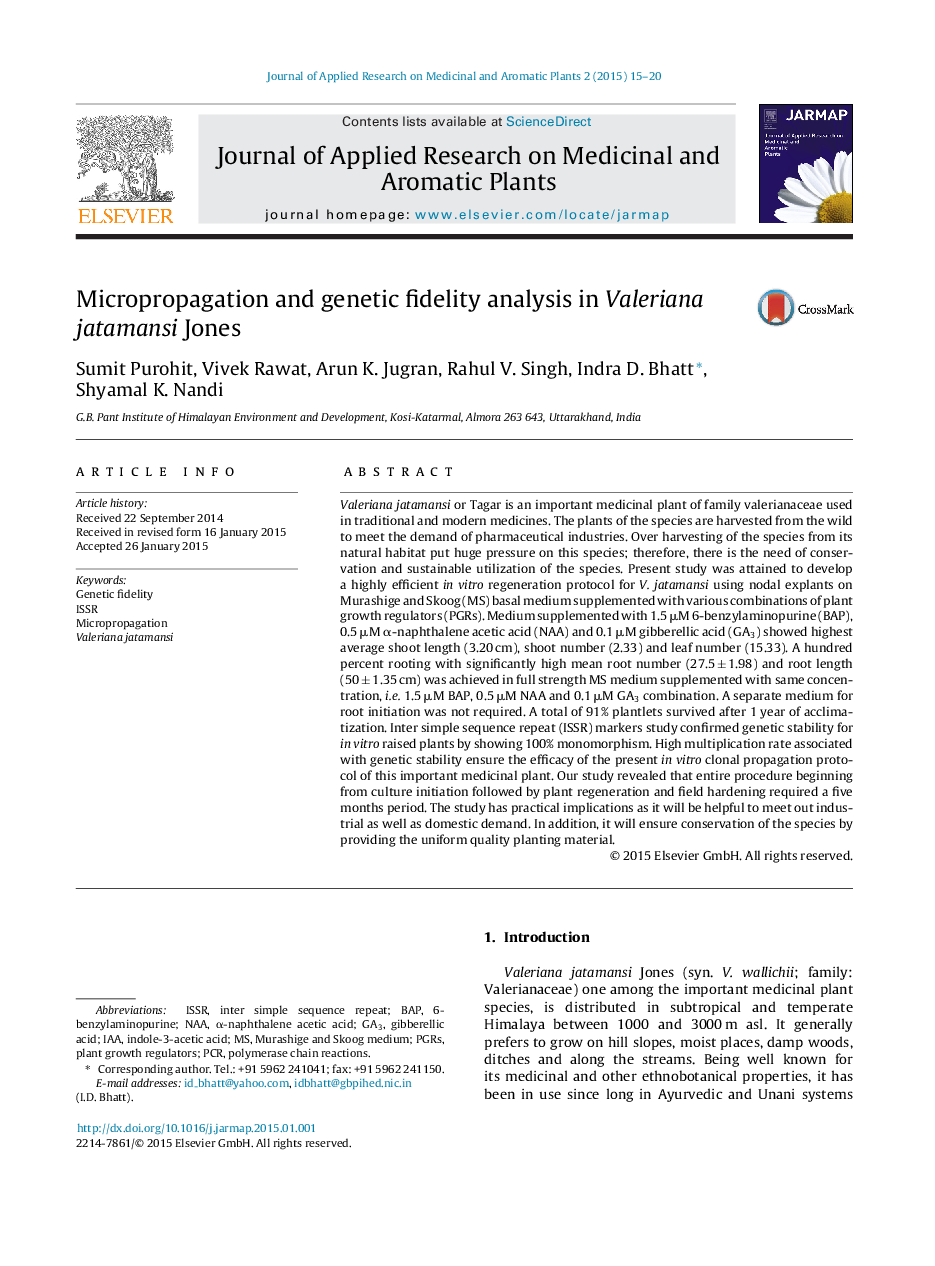| Article ID | Journal | Published Year | Pages | File Type |
|---|---|---|---|---|
| 3099202 | Journal of Applied Research on Medicinal and Aromatic Plants | 2015 | 6 Pages |
•Valeriana jatamansi, a medicinal plant used in traditional and modern medicines.•An efficient in vitro propagation protocol using nodal explants has been developed.•The protocol reports survival of 91% plants after 1 year of acclimatization.•ISSR markers confirmed genetic stability for in vitro raised plants.•The study has practical implications to meet out industrial and domestic demand.
Valeriana jatamansi or Tagar is an important medicinal plant of family valerianaceae used in traditional and modern medicines. The plants of the species are harvested from the wild to meet the demand of pharmaceutical industries. Over harvesting of the species from its natural habitat put huge pressure on this species; therefore, there is the need of conservation and sustainable utilization of the species. Present study was attained to develop a highly efficient in vitro regeneration protocol for V. jatamansi using nodal explants on Murashige and Skoog (MS) basal medium supplemented with various combinations of plant growth regulators (PGRs). Medium supplemented with 1.5 μM 6-benzylaminopurine (BAP), 0.5 μM α-naphthalene acetic acid (NAA) and 0.1 μM gibberellic acid (GA3) showed highest average shoot length (3.20 cm), shoot number (2.33) and leaf number (15.33). A hundred percent rooting with significantly high mean root number (27.5 ± 1.98) and root length (50 ± 1.35 cm) was achieved in full strength MS medium supplemented with same concentration, i.e. 1.5 μM BAP, 0.5 μM NAA and 0.1 μM GA3 combination. A separate medium for root initiation was not required. A total of 91% plantlets survived after 1 year of acclimatization. Inter simple sequence repeat (ISSR) markers study confirmed genetic stability for in vitro raised plants by showing 100% monomorphism. High multiplication rate associated with genetic stability ensure the efficacy of the present in vitro clonal propagation protocol of this important medicinal plant. Our study revealed that entire procedure beginning from culture initiation followed by plant regeneration and field hardening required a five months period. The study has practical implications as it will be helpful to meet out industrial as well as domestic demand. In addition, it will ensure conservation of the species by providing the uniform quality planting material.
Graphical abstractFigure optionsDownload full-size imageDownload as PowerPoint slide
